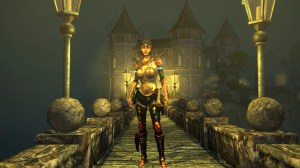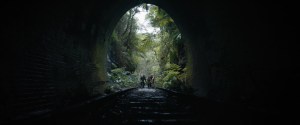Indiana Jones and the Dial of Destiny is now playing in theaters, and it marks the fifth time Harrison Ford has played the titular hero. Since the franchise’s inception back in 1981, Indy has come face to face with many mystical relics, and the new film is no different. In Dial of Destiny, Indy teams up with his goddaughter Helena Shaw (Phoebe Waller-Bridge) in order to stop a Nazi-turned-NASA scientist Jürgen Voller (Mads Mikkelsen) from acquiring Archimedes’ Dial and using it to go back and win World War II. Towards the end of the film, Indy and Helena find themselves traveling to the past and coming face to face with Archimedes himself. During a recent interview with The Hollywood Reporter, director James Mangold spoke about the movie’s ending and explained why it’s not quite time travel.
Videos by ComicBook.com
“So I never thought about this as time travel per se, although they certainly go through a portal in time at the end of the movie,” Mangold explained. “But the movie isn’t about time travel. It’s about time, it’s about getting older and it’s about the world changing around you. And as long as there’s been Indiana Jones movies, the power of the relic has always had some kind of dialogue with the theme of the movie itself. So it was no shocker.”
“[Indiana Jones movies] are always a kind of fanciful interaction between an aspect of history, science, and miracles, and so my goal with the end of the picture was to have a big swing, which is a staple of these movies at the end,” Mangold continued. “I wanted Indy to be confronted with something that would not only challenge his notions of belief but also tempt him in a way. Life in the modern world had gotten disillusioning enough that the idea of actually living in history might be a temptation for him.”
During a recent interview with ComicBook.com, Mangold spoke more about continuing Indiana Jones’ legacy and the franchise’s use of mystical elements.
“Well, certainly myself and my co-writers on the picture, we discussed it a lot,” Mangold said of adding the time travel elements to Indy’s story. “But it’s not really so controversial, these movies have a very elegant form. The relic always defines the third act and the power of the relic defines the magic of the movie. So whether you’re talking about the Ark of the Covenant or you’re talking about the Holy Grail, or at all, we can talk about all of them, but whatever goes down in the third act is usually some kind of reaction to the magic and power and mysticism possessed by the relic itself. And usually pretty mind-blowing.”
Mangold continued, “I mean, even the original Raiders I think was a pretty big swing in terms of chasing this tablet through the desert for two hours and then suddenly someone opens this box and the movie turns into Poltergeist or Close Encounters of the Third Kind. It was kind of a massive shift, but a beautiful one and one that in a way forced Indiana Jones to confront, as a scientist, something he could not explain. And I think that has become a staple of all the movies, that each movie ends up culminating with a kind of event, a kind of magical, inexplicable event that forces this doctor, this scientist to suddenly have to wrestle with how he’s going to explain this with simple logic.”
The iconic Harrison Ford returned for one last adventure as Indiana Jones and the Dial of Destiny premiered in theaters on June 30th. Lucasfilm’s latest film in the long-running franchise sees Dr. Jones team up with his goddaughter Helena Shaw (Phoebe Waller-Bridge) in a race against nefarious forces to secure a powerful artifact. The duo will go up against the mysterious former Nazi-turned-NASA scientist Jürgen Voller (Mads Mikkelsen), and the film also features stars Boyd Holbrook, Antonio Banderas, Toby Jones, and John Rhys Davies. Indiana Jones and the Dial of Destiny is directed by James Mangold and is Ford’s final appearance as the iconic archeologist.








